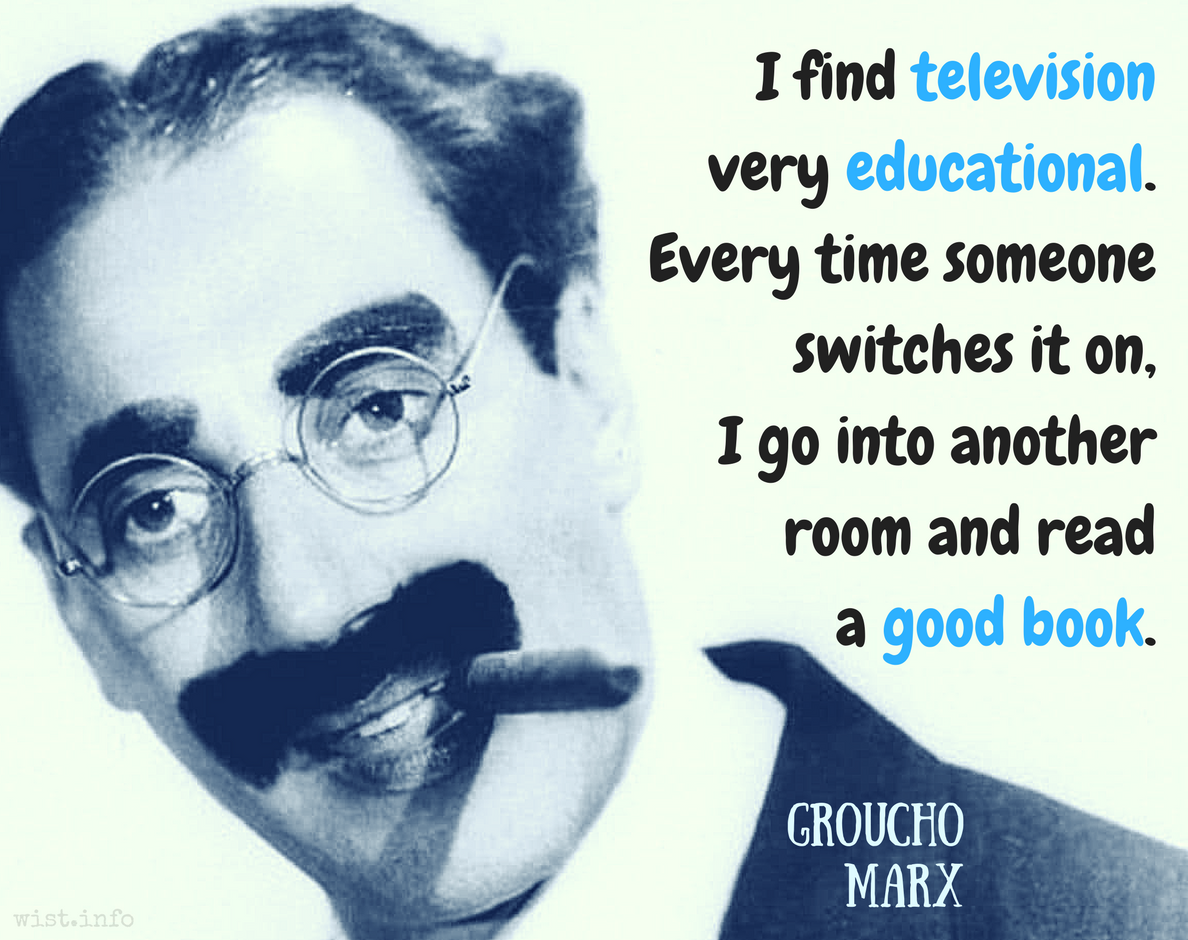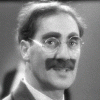I must say I find television very educational. The minute somebody turns it on, I go into the library and read a good book.
Groucho Marx (1890-1977) American comedian [b. Julius Henry Marx]
“King Leer,” Tele-Views (Sep 1950)
Commonly paraphrased: "I find television very educational. Every time someone switches it on, I go into another room and read a good book." A number of uses of this line by Marx are found around the same time frame, with variant wordings. See here for more discussion.
Quotations by:
Marx, Groucho
Speak when you are angry and you will make the best speech you will ever regret.
Groucho Marx (1890-1977) American comedian [b. Julius Henry Marx]
(Attributed)
Quoted by Ever Star, "Inside TV," Greensboro Record (3 Nov 1954). Also attributed to Ambrose Bierce, Henry Ward Beecher, and Lawrence J. Peter. More research and discussion here.
I’ve had a perfectly wonderful evening. But this wasn’t it.
Groucho Marx (1890-1977) American comedian [b. Julius Henry Marx]
(Spurious)
Groucho (in 1962) denied ever using the phrase (attributed to him as early as 1941). The earliest, somewhat dubious instance of it found is in 1936, attributed to comedian Hugh Hubert. More here.
The trouble with writing a book about yourself is that you can’t fool around. If you write about someone else, you can stretch the truth from here to Finland. If you write about yourself the slightest deviation makes you realize instantly that there may be honor among thieves, but you are just a dirty liar.
I don’t want to belong to any club that will accept me as a member.
Groucho Marx (1890-1977) American comedian [b. Julius Henry Marx]
Groucho and Me, ch. 26 “Foot in Mouth Disease” (1959)
(Source)
Variant: "I don't want to belong to any club that would have me as a member."
Different confidants of Groucho's attributed this resignation note to different organizations, though most think the resignation from the Friars Club or the Hillcrest Country Club. In his autobiography (the noted source), Grouch referred to it apocryphally as "the Delaney Club."
More discussion of this quotation:


